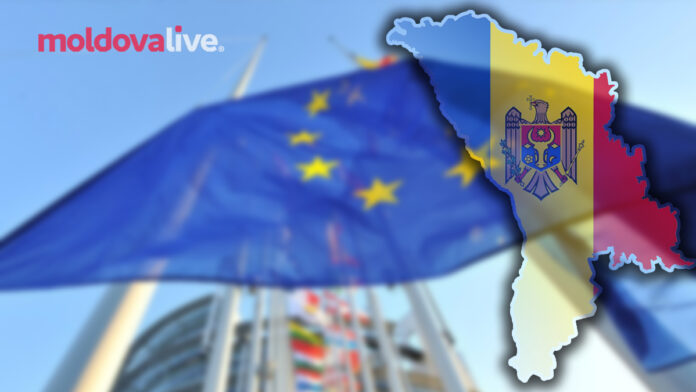Moldova is preparing for a pivotal referendum on EU membership this week, a decision that could shape the country’s future. But what benefits could aligning with the EU bring?
Nestled between the European Union and Ukraine, Moldova faces numerous challenges, from economic struggles to slow judicial reforms and rapid depopulation. Tackling these issues alone has proven difficult, Emerging Europe reports.
While there is no quick fix, a pro-EU vote in the October 20 referendum—held alongside the first round of the presidential election—could steer the country in the right direction.
What would EU membership mean for Moldova?
Moldovans are being asked a straightforward question: Do you support amending the Constitution to pursue EU membership? President Maia Sandu is leading the campaign for a “yes” vote. Polls indicate strong support for both EU integration and Sandu’s re-election.
The Economy
Moldova is Europe’s poorest country, with a GDP per capita of just 7,000 euros—about a third of neighboring Romania, an EU member. The potential for economic growth through EU membership is significant. Since joining the EU in 2007, Romania’s purchasing power jumped from 43% to 78% of the EU average.
Agriculture, which employs over a quarter of Moldova’s workforce and generates 12% of its GDP, would require substantial investment to meet European standards. EU membership would open access to the bloc’s common agricultural policy, providing vital funding for this sector.
Moldova’s Economy Minister recently emphasized that EU candidate status would signal to investors that Moldova is a stable and promising business environment. The EU is Moldova’s largest trading partner, accounting for 53.7% of its trade in 2023. For Moldova’s export-driven economy, gaining quicker and cheaper access to EU markets is critical.
Infrastructure
Moldova’s roads are among the worst in Europe, contributing to road fatalities and economic losses. EU membership would unlock more funding to modernize infrastructure, improve supply chains, and boost the movement of goods and services. This, in turn, would enhance quality of life by creating jobs and improving access to healthcare and education.
Demographics
Moldova’s population has dramatically declined, shrinking by 1.5 million people over the past 30 years, according to research by the Institute for Development and Social Initiative (IDIS) Viitorul. This puts the population at 2.8 million, down from 4.3 million in 1989. Depopulation has been driven by economic hardship and a weak job market, forcing many to seek better opportunities abroad.
Improved economic conditions through EU investment could help reverse this trend, offering Moldovans better prospects at home.
Stronger Institutions
President Sandu has pledged zero tolerance for corruption, and EU support is key to realizing this goal. EU membership would provide mechanisms to strengthen the rule of law and ensure Moldova’s institutions remain robust and democratic. It would also help the country resist external interference.
Moldova’s Chief of Police, Viorel Cernauteanu, recently revealed evidence of Russia’s attempts to sway public opinion ahead of the referendum through bribes, hybrid warfare, and disinformation. The European Commission and the European Parliament have condemned Russia’s interference and taken steps to counter disinformation, including securing 45 million euros to combat fake news in Moldova.
The Road Ahead
The EU membership represents Moldova’s best chance for growth, but it depends on public support and voter turnout. A turnout of at least 30% is required for the referendum to be valid. Without it, Moldova’s path to the EU could be cut short, with severe consequences for the country’s future.


